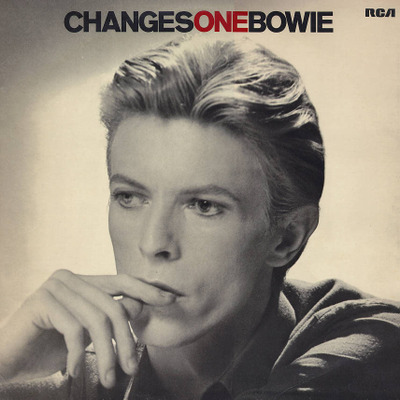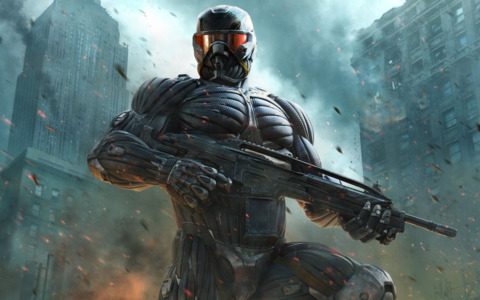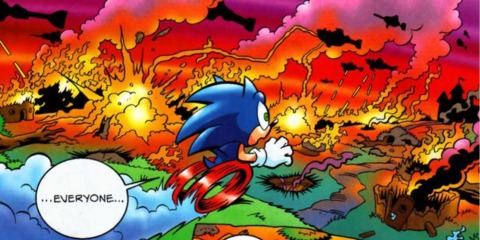A little bit of housekeeping. There's no Worth Playing this week. There might not be next week, either!

I'm not dropping the feature, but...I'm reconsidering it. While I'm deeply appreciative of the folks who have enjoyed it, there's a way to retool Worth Playing to make it enjoyable for a wider audience. It's deeply important to me that Giant Bomb's platform be used to showcase the full breadth of what's out there, and Worth Playing was an extension of that mission statement. But I need some time to consider what those changes are, which could be anything from moving away from the weekly format to curated themes (this week, it's roguelikes!) to fully editing the feature, allowing it to be more on-point.
In any case, I always like to be transparent about change, especially as it relates to my thought process. No one asked me to drop Worth Playing, but I'm always hoping to up my own standards. This is simply an example of that.
Here's to the future!
You Should Read These

It's surprising Crytek CEO Cevat Yerli agreed to this interview. More specifically, I'm surprised at this answers. On one hand, going head-to-head with the press after your company has gone through the financial wringer is admirable, but Yerli's answers do not inspire much confidence. When Wesley Yin-Poole pushes Yerli to talk about employees being upset about not being paid, Yerli comes across as profoundly tone deaf and out of touch. You don't get to ask your employees to "calm down" when their livelihood is in your hands. Something tells me more people are going to leave Crytek in the near future. If that interview was coming from my boss, I'd be out the door.
"Some people were very impatient and got angry at the smallest delay. Also, there was a critique of us not being proactive in communication, which we don't understand, because we had been frequently in the UK as well as every other studio, talking about potentially rough times. And we had even shared with people how they should maybe work with different banks at a personal level to prepare. Or, if not, they could make a choice to resign and look for other jobs.
[...]
I was surprised and upset a little bit that the intention of us keeping together everybody upset a few of them. But I understand that situation. Some people live in very tight financial planning. That's their own privacy. They can do whatever they want. Those guys, when they get under pressure it can become emotional. We tried to individually help out. Like if somebody gets in trouble they can talk to us directly so they don't get under pressure. We tried whatever we could do. But you can't make it right for everybody."

Most of our conversations around Sonic the Hedgehog have to do with how poorly Sega has treated the little guy in the years since his Genesis heydays. What's incredible about Zolani Stewart's deep examination of the blue guy is his deconstruction of Sonic's various roles across different forms of media, how that intersects with the desires of his creators, what that says about society at the time, and ultimately how that connects back to the player in control. I've never read something so profoundly shift my understanding of a video game character. (Though learning Yoshi's real-name came awfully close.)
"As Sonic and his friends became more boring and obnoxious with every installment, Sonic himself seemed to be getting closer to the Mascot construction that he was always meant to embody. Sonic was created as an object that can be plastered onto things like, say, an Olympic videogame tie-in, and yet the results these mergers never seemed right. I never had a problem watching Mario drive karts or play tennis and yet it's disturbing to watch a sad, frowning Blaze the Cat on ski-shoes with a target gun. It's not comforting or disarming. Rather, it's awkward and uncomfortable, knowing that these characters have histories, motivations and character that are being metaphorically gutted for the sake of being cute character stand-ins. The truth about the Sonic games' central conflict is that Sonic never worked very well as a Mascot. Not the way that Mario always has. Sonic games, and Sonicmedia by extension were always a little bit political, they always carried subtext, formal or textual, that was incompatible with the requirements of the Mascot construction. Sonic always carried potential to be interesting, butSonic games seem to have progressively dissolved this potential."
If You Click It, It Will Play
These Crowdfunding Projects Look Pretty Cool
- Kickstarter performs a postmortem analysis of the hilarious Potato Salad project.
- The Sun Also Rises proposes a war game viewed through the lens of citizens, not soldiers.
- Hive Jump promises to combine Spelunky with XCOM and, yes, I would like that very much.
Tweets That Make You Go "Hmmmmmm"
I find the argument that a female character is some how weaker or lesser because she learns something from a man utterly perplexing.
— Rhianna Pratchett (@rhipratchett) August 5, 2014
We need more female leads in games, but I don't think tearing one down to justify love of another achieves anything. They can all coexist.
— Rhianna Pratchett (@rhipratchett) August 5, 2014
Ideal @Twitch highlight system: Highlights up to any length. Give the broadcaster an option to save the chat to replay alongside the vod.
— Cosmo Wright (@cosmowright) August 6, 2014
We’re up all night to get some / We’re up all night for good fun / We’re up all night to Spelunk-y
— Sarah Argodale (@sarahargodale) November 13, 2013
Oh, And This Other Stuff
- Alexander Bleau breaks down what screen shots work best on the App Store.
- Laura Kate Dale has a conversation with Totalbiscuit about the power of words.
- Jenn Frank laments the lack of a pause button through her own relationships.
- Hopeless Lost has discovered Booker can be dropped into just about any game.
- Justin Keever writes a thank you letter to Kane from Kane & Lynch.
- Terence Lee tries to break down how games can tell good stories.
- Cara Ellison documents a designer's attempt to make a brutally honest game about sex.
- Raph Koster tries to figure out when a game actually becomes a clone.
- Javier Laspiur documents the evolution of controllers in a series of beautiful photos.
- GB user thatpinguino looks at the rocky road facing the future of games writing.
- Yacht Club Games pulls back the curtain on Shovel Knight's first month of sales.
- Leigh Alexander has published a book, Clipping Through, about her recent travels.
- Ron Amadeo has a pretty interesting reading of Twitch's latest moves.
- The archaeologists behind the recent Atari dig reveal their true intentions.
- Patricia Hernandez documents an absurd quest to kill a goomba in Super Mario 64.